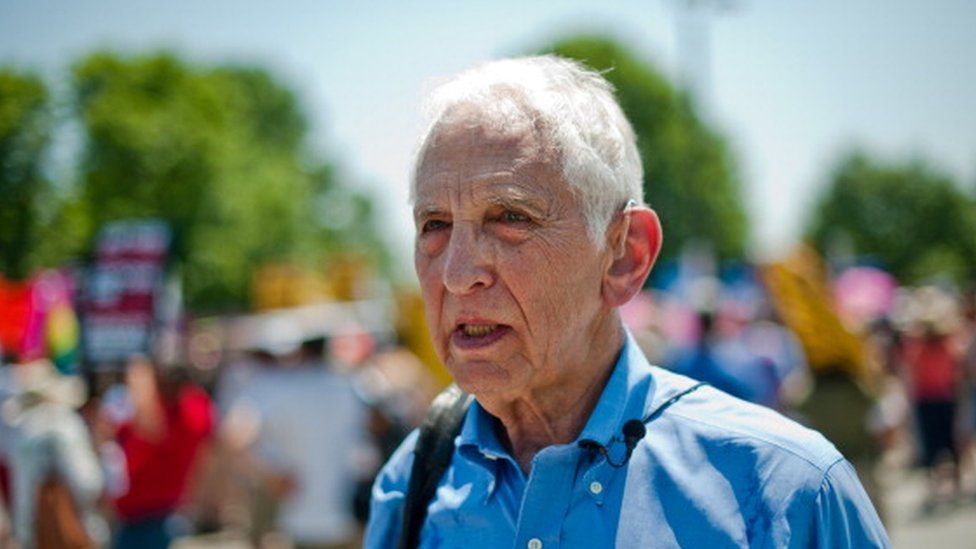
Ellsberg announced in March that doctors told him he had terminal pancreatic cancer and only around six months to live.
“He was not in pain, and was surrounded by loving family,” his wife and children said in a statement announcing his death — and highlighting that his last months had been well spent despite his illness.
Ellsberg’s family said he had been “thrilled to be able to give up the salt-free diet his doctor had him on for five years.”
“Hot chocolate, croissants, cake, poppyseed bagels, and lox gave him extra pleasure in these final months,” they wrote. “He also enjoyed re-watching his favorite movies, including several viewings of his all-time
favorite, “Butch Cassidy and the Sundance Kid.”
Ellsberg was a military analyst when he released thousands of documents to US media in 1971 that revealed successive United States administrations had lied to the public about the Vietnam War.
The 7,000 classified pages determined that, contrary to the public assertions of US government officials, the conflict was unwinnable.
The leak changed public perceptions of the conflict and was recounted in the 2017 Hollywood thriller “The Post,” which detailed the nail-biting behind-the-scenes story of the papers’ publication.
The New York Times published excerpts until the administration of President Richard Nixon obtained a court injunction barring the newspaper from continuing to do so on national security grounds. The Washington Post then took up the mantle.
Ellsberg was charged under America’s Espionage Act but the case ended in a mistrial in 1973 after illegal evidence gathering by the government came to light.
“Daniel was a seeker of truth and a patriotic truth-teller, an antiwar activist, a beloved husband, father, grandfather, and great-grandfather, a dear friend to many, and an inspiration to countless more. He will be dearly missed by all of us,” his family added.
AFP





